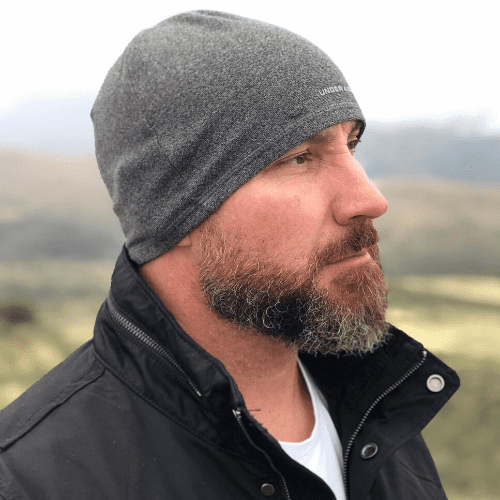Negative emotions and substance use often go hand in hand. In American culture, alcohol is often seen as an acceptable way to cope with stress or let loose.
For many, turning to drinking or drug use becomes a lifelong pattern of dealing with bad news or negative feelings.
As someone in recovery, it’s important to move away from the “I’ll just get drunk and forget about it” mindset and find healthier ways to cope with difficult emotions.
Here are ten approaches you can use as a guide to develop your own tools for dealing with destructive thoughts:
1. Try to See Yourself From a Different Perspective
When you’re feeling stressed, try to look at the situation objectively. Visualize how the best version of yourself would handle this challenge.
This approach, similar to methods used in Cognitive Behavioral Therapy (CBT), can help you step outside of the destructive emotions you’re experiencing. It allows you to make decisions from a place of stability, keeping your future goals in mind.
Practice Self-Reflection
- Take a few deep breaths, try to calm your mind, and center yourself.
- Step out of yourself and ask yourself: “How would I advise a friend in this situation?”
- Consider the big picture and your long-term well-being. Ask yourself: “Is it worth it?”
Coping Strategies to Try
Writing down your thoughts and emotions in a journal can be a powerful way to process and release negative feelings. It allows you to gain clarity, identify patterns, and work through challenges in a safe, private space.
Spending time in nature can calm the mind and body. A leisurely walk in a park, forest, or along a beach can help you feel grounded, reduce stress, and gain a fresh perspective on your situation.
Deep breathing exercises can help you relax and regain control when you feel overwhelmed. By focusing on your breath and taking slow, deep inhales and exhales, you can lower your stress levels and find peace.
Cultivating gratitude can help shift your focus from negative emotions to the positive aspects of your life. Take a few minutes each day to write down or mentally acknowledge the things you’re thankful for, no matter how small they may seem.
2. Get Moving
Physical activity can be a powerful way to let go of negative feelings. Whether you enjoy running, swimming, or hitting the gym, exercise can help you work through destructive emotions in a more positive way.
You’ll feel like you’re acknowledging and releasing those feelings without harming your long-term health. As a bonus, you’ll get in better shape!
Try These Exercises
- Go for a brisk walk or jog in nature
- Take a fitness class like kickboxing or Zumba
- Do some strength training exercises at home
3. Focus on the Future
When facing a tough situation, consider how to avoid being in the same position again. While you can’t control everything, you can control your actions. Setting goals or establishing personal rules can help you feel more in control while steering your life in a better direction.
Set Achievable Goals
- Break down larger goals into smaller, manageable steps. This will help make it feel more obtainable. Which will help keep you from getting discouraged.
- Write down your goals and review them regularly
- Celebrate your progress along the way
Quick Tip
Embrace Acceptance, Surrender, and Honesty
Leaving the wreckage of your past life behind and continuing onto a new, sometimes terrifying, but transformative journey into recovery requires a deep commitment to personal growth and change. You may sometimes feel overwhelmed and discouraged, but that’s okay. Find comfort in knowing that you’re not alone and that many addicts have felt exactly what you are feeling right now. It helps to know that when you are introduced to the 12-step program, it breaks down to three essential principles—Acceptance, Surrender, and Honesty.
- Accepting that you have a problem with substance use and that you need help is the first step toward healing.
- Surrendering to the fact that you cannot control your addiction alone and that you need support from others and a higher power is a powerful act of humility and courage.
- Finally, being honest with yourself and others about your struggles, fears, and hopes is not only important but necessary for building trust and accountability in recovery.
By embracing these principles and surrendering to a higher power, you finally allow yourself to break free from the shackles of your past. You open yourself to the possibility of lasting change and the chance to help others who feel the same way you did.
You find a family of individuals who truly understand what you’ve been through and CHOOSE you, not in spite of your past but BECAUSE OF IT.
Now, isn’t that the true meaning of unconditional love?
A complete group of strangers CHOOSING to embrace you after each share you give on the wreckage of your past. If it’s not, what is?
4. Lean on Your Support System
Sometimes, sharing your problems with someone you trust can provide a fresh perspective and make a difficult situation more manageable. Don’t hesitate to contact your friends, family, or sober peers if you need to vent. Their support and understanding can make all the difference.
Ways to Connect
- Schedule a phone call or video chat with a loved one
- Attend a support group meeting or talk to your sponsor
- Plan a safe, sober activity with friends
What if I'm in a situation where I feel like I have no other option but to turn to drugs or alcohol?
If you find yourself in a crisis where you feel overwhelmed and tempted to turn to substances, remember that you always have other options. Reach out to your support system, attend a meeting, call a helpline, or use one of the coping strategies you’ve learned. No matter how difficult things may seem, there is always help available, and you have the strength to get through this challenging moment without turning to drugs or alcohol.
I've been using these coping strategies, but I still feel like I'm struggling. What should I do?
Recovery is a journey, and it’s normal to have ups and downs along the way. Feel free to reach out for additional support if you feel like you need to progress or be able to cope. This may mean talking to your therapist, attending more meetings, or adjusting your treatment plan. Remember, asking for help is a sign of strength, and there’s no shame in admitting that you need more support.
Can these coping strategies help me in the long run, or are they temporary fixes?
While coping strategies can provide immediate relief in challenging situations, they are also valuable tools for long-term recovery. By consistently practicing healthy coping methods, you’ll develop a strong resilience and emotional regulation foundation to serve you well throughout your journey. Over time, these strategies will become second nature, and you’ll find it easier to navigate difficult emotions and situations without turning to substances.
5. Indulge in Healthy Ways
Just because you’re not turning to drugs or alcohol doesn’t mean you can’t find other ways to alleviate stress. Allow yourself to indulge (safely) in things you enjoy but might not usually permit yourself. If you’re craving unhealthy foods, want to sleep in a bit later, or spend a day engaged in a fun but unproductive hobby, that’s still a better choice than turning to substances.
Ideas for Safe Indulgence
- Treat yourself to your favorite comfort food
- Take a relaxing bubble bath or get a massage
- Binge-watch a new TV series or read a good book
Get Help for Substance Abuse at Cornerstone
We offer a wide range of treatment for mental health and substance abuse conditions. Begin your journey to recovery today!
6. Change Your Surroundings
When you’re in a bad mood and can’t seem to shake it, try taking a long walk or going for a drive. Putting yourself in a new environment can help your mind reset and create some distance from your problems. This distance may allow you to consider new perspectives and solutions. It can also provide an outlet for frustration without affecting others or damaging your living space.
Refreshing Scenery Changes
- Visit a local park or nature trail
- Explore a new neighborhood or town
- Take a day trip to a nearby attraction
7. Tap Into Your Creativity
Channeling negative emotions into art can be like exercising the mind. Creative outlets allow you to process your feelings constructively, whether you enjoy playing an instrument, writing, painting, or any other form of self-expression. Your creation can embody darkness or anger without harming your well-being or future. You may even discover a new passion in the process.
Creative Outlet Ideas
- Write in a journal or start a blog
- Take a painting or pottery class
- Learn to play a new instrument
8. Practice Mindfulness
Meditation can be a powerful tool for clearing your mind and approaching challenging situations with a fresh perspective. Various meditation and mindfulness practices exist, so research and try a few methods to find one that resonates with you. Incorporating mindfulness into your daily routine can help you better navigate difficult emotions when they arise.
Mindfulness Techniques
- Try guided meditations using apps or videos
- Practice deep breathing exercises
- Engage in mindful activities like yoga or tai chi
9. Break Your Patterns
Sometimes, the most helpful thing you can do for yourself is to surprise your brain and break out of an emotional rut.
Think about how you’d typically react in a challenging situation, then do the opposite. Most of our reactions are knee-jerk emotional responses based on habits. By consciously choosing a different response, you can start building new, healthier habits.
In these situations, it’s important to remember that our first thought is almost always the wrong one to act on.
Pattern-Breaking Ideas
- If you usually isolate when upset, reach out to a friend instead
- If you tend to lash out in anger, try taking a few deep breaths and walking away
- If you often turn to food for comfort, try going for a walk or calling a loved one
10. Seek Professional Support
If these coping methods aren’t enough to help you overcome negative emotions, don’t hesitate to seek professional support.
Whether you seek guidance from your sponsor, healthcare providers, or a therapist, you always have options during extreme challenges. You don’t have to face these difficulties alone.
Professional Support Options
- Schedule an appointment with a therapist or counselor
- Attend additional support group meetings
- Consult with your doctor about medication or other treatment options
At Cornerstone Healing Center, we understand that recovery is a journey with ups and downs. No matter how prepared or strong your support system is, there may be days when the urge to turn to destructive habits feels overwhelming. Remember that you haven’t exhausted all your options when those moments come. Effective help is always available, no matter where you are in your recovery journey.
You're Not Alone on This Journey
Recovery is a life-long journey, and it’s important to remember that you don’t have to walk this path alone. There will be bumps and hurdles along the way, but with the right tools, support, and mindset, you can overcome them and continue moving forward.
The ten coping strategies we’ve discussed here are just a starting point. As you recover, you discover what works best for you and will develop your own unique tools for facing life’s challenging times. Life has a funny way of testing you when you think you’re in the clear, and it’s important to remember that although we may recover, this is a lifelong disease, and we must not become complacent.
Do not get discouraged by this. Find humor in life’s challenges and embrace the uncomfortable moments, for you will find that is when you need to the most. Look at life’s challenges as a reminder that the room for growth is everlasting if you allow it.
At Cornerstone Healing Center, the staff will support you every step of the way. Our experienced, compassionate team understands the complexities of addiction and recovery, and most of us here know personally how difficult this decision can be.
Keep in mind that some of our staff here have once been in your shoes. We’re dedicated to providing personalized care and guidance while building a strong foundation for lasting sobriety. Know that recovery is possible; you are surrounded by it.
Whether you’re just starting your journey or you’ve been in recovery for years, we’re here to help you face challenges head-on, celebrate your successes, and create the fulfilling, substance-free life you deserve.
Remember, asking for help is a sign of strength, NOT weakness. Don’t hesitate to reach out if you struggle to cope with negative emotions or face a particularly tough situation. Your support system, including friends, family, sponsors, and treatment professionals, will lift you and help you stay on track. With their support and your commitment to finding healthy coping strategies that work best for you, you can overcome any obstacle and continue your journey toward life-long recovery.
Key Takeaways
- Key Takeaways
- Developing healthy coping strategies is crucial for maintaining long-term sobriety and navigating difficult emotions without turning to substances.
- Exercising, creativity, mindfulness, and seeking support from loved ones can help you manage stress and negative feelings constructively.
- Recovery is a journey with ups and downs, and it's essential to be patient with yourself, celebrate your progress, and seek help when needed.
- Embracing acceptance, surrendering to a higher power, and being honest are key principles guiding you toward lasting change and a fulfilling, substance-free life.









